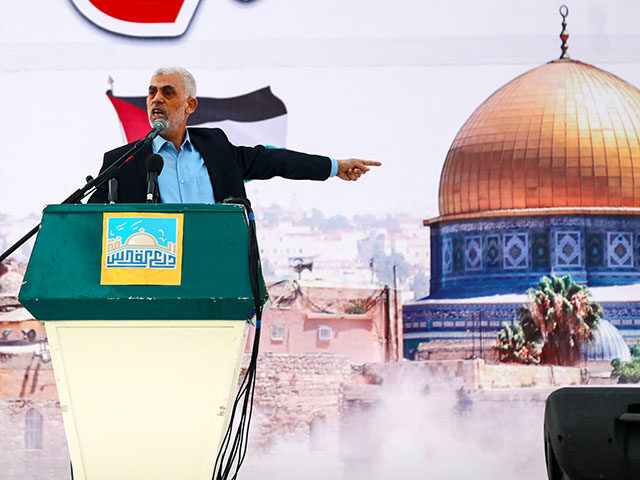Kremlin Spokesman Dmitry Peskov said on Thursday that Russia has “deep concerns” about the “consequences” for the Middle East as a result of the death of Hamas leader Yahya Sinwar.
“The main thing for us is the consequences for the peaceful population that we see,” Peskov told reporters. “We have serious concerns about this.”
“The humanitarian disaster that is observed in both Gaza and Lebanon is the subject of our serious concern,” he added.
Israel Defense Forces (IDF) members killed Sinwar in a chance encounter in the Gaza city of Rafah on Wednesday. The Hamas leader planned and executed the jihadist group’s unprecedented October 7 terrorist attack on Israel, which left over 1,200 dead and hundreds taken hostage.
Sinwar’s death marks the end of a year-long pursuit of the Hamas leader who, the IDF and Israel Security Agency (ISA) informed, remained hidden among the civilian population of Gaza. The IDF suspected that Israeli forces inadvertently killed Sinwar after a tank fired at a building where three terrorists had been spotted – finding, much to their surprise, Sinwar’s body inside the structure.
Drone footage released by the IDF on Thursday revealed Sinwar’s final moments. The footage shows Sinwar throwing an object at the drone that military reports described as a “wooden stick.” Sinwar failed to hit the drone with the thrown object.
In addition to Peskov’s comments, Russian Deputy Foreign Minister Mikhail Bogdanov, answering questions from reporters, said that while Sinwar’s death was “jarring,” he does not consider it to be a “turning point” that prompts a new escalation wave in the Middle East.
“This is not the first time such dramatic events have happened. There is always someone waiting in the wings. Such a person has already been found. As far as I understand, it is Khaled Mashal, who once served as Head of the Hamas political bureau. Now, he will do so again,” Bogdanov said.
Vladimir Fitin, adviser to the director of the Russian Institute for Strategic Studies, told Tass on Friday that the death of the Hamas leader may push the group’s remaining officers to start negotiations with the Israeli government.
“If what Israel reports really happened and they managed to eliminate Sinwar, this is likely to deal a serious blow to Hamas, which has lost a number of its leaders one after the other,” Fitin said. ” And perhaps it will encourage the rest of the Hamas leadership to negotiate with Israel. It is not impossible that some steps will be taken in this direction.”
Fitin reasoned to the Russian state-owned outlet that the death of Sinwar “significantly” weakens Hamas’ military potential and, as a result, it is unlikely that the jihadist group is “able to carry out a serious military response” in the near future.
“They are capable of individual sorties, but nothing more,” the Russian adviser said.
Sinwar’s death prompted reactions and statements from several heads of state. U.S. President Joe Biden congratulated Israeli Prime Minister Benjamin Netanyahu on the killing of the Hamas leader while Netanyahu, speaking to Israel on a national broadcast, called for Hamas to release the remaining 101 hostages the jihadist group maintains imprisoned. Netanyahu stressed that a chance for peace has arrived with the death of Sinwar.
In Latin America, the region’s three Hamas-friendly regimes – Cuba, Nicaragua, and Venezuela – have all notably abstained from issuing public comments or statements pertaining to Sinwar’s death at press time.
The absence of a public statement stands in contrast to previous events where the Latin American regimes expressed their support of actions committed against Israel, such as Iran’s missile attack in early October.

COMMENTS
Please let us know if you're having issues with commenting.